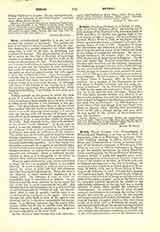

Erthal, FRANZ LUDWIG VON, Prince-Bishop of Würzburg and Bamberg, b. at Lohr on the Main, September 16, 1730; d. at Würzburg, February 16, 1795. After studying theology at Mainz, Würzburg, and Rome, and jurisprudence at Vienna he became president of the secular Government of Würzburg in 1762. When he was sent in 1768 as Ambassador to Vienna to get the imperial investiture for Adam Friedrich, Count von Seinsheim, the Prince-Bishop of Würzburg, Emperor Joseph II made him imperial privy councillor and inspector of the Imperial Chamber (Supreme Court of the empire) at Wetzlar. In 1776 he took part as imperial commissioner in the Diet of Ratisbon. He succeeded Adam Friedrich as Prince-Bishop of Wurzburg, March 18, 1779, and as Prince-Bishop of Bamberg on the following April 12. His rule was a blessing for Church and State. Being himself deeply religious, he endeavored to imbue his clergy and people with the spirit of true faith and piety. As far as the Church and his episcopal position permitted, he yielded to the rationalistic tendencies of the age, but was a stanch defender of papal rights against the adherents of Febronianism. As temporal ruler he never allowed personal considerations to outweigh the welfare of the people, and used his private means for the erection and improvement of charitable institutions. At Bamberg he founded a hospital which at that time was a model of its kind, and at Würzburg he greatly improved and partly rebuilt the already existing hospital of St. Julius. He improved the entire educational system, bettered the economic conditions of rural life and of the civil administration, and set the finances of his principalities on a firm basis. Von Erthal is the author of a work in German, refuting the revolutionary principles of his age, which is entitled: “Ueber den herrschenden Geist dieser Zeiten and fiber das Verhalten des rechtschaffenen Christen bei denselben” (Würzburg, 1793). Some of his sermons were collected and published after his death (Bamberg, 1797).
MICHAEL OTT

